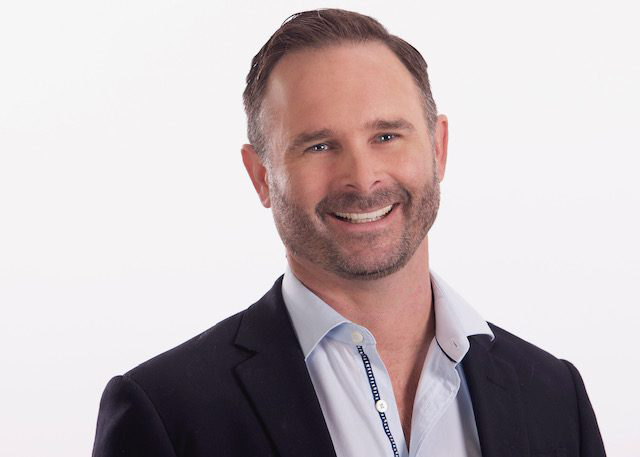When someone you care about experiences a relapse in their recovery journey, knowing what to say can feel overwhelming. Your words have the power to either support their healing or inadvertently cause more harm. Understanding what to say to someone who relapsed, how to respond with empathy, compassion, and practical support can make all the difference in helping them get back on track.
Relapse is a common part of the recovery process, and responding with judgment or anger only adds to the shame and guilt they’re already feeling. Instead, this moment calls for understanding, patience, and actionable support. At SEE Purpose Center for Addiction Treatment in Bloomfield, Indiana, we understand that recovery is rarely a straight line, and we’re here to help individuals and their loved ones navigate these challenging moments together.
Understanding Relapse: The Science Behind Addiction
Before diving into what to say to someone who relapsed, it’s crucial to understand what relapse really means. Addiction is a chronic brain disease that affects the brain’s reward, motivation, and memory systems.1 When someone relapses, it’s not a moral failing or a lack of willpower—it’s a symptom of their disease.
The brain changes that occur with addiction can persist long after someone stops using substances. Stress, environmental triggers, and emotional challenges can all contribute to relapse. Research shows that relapse rates for addiction are similar to other chronic diseases like diabetes or hypertension, occurring in 40-60% of people in recovery.2
This scientific understanding should shape how we respond. Just as you wouldn’t blame someone for having a diabetes flare-up, approaching relapse with medical understanding rather than moral judgment creates space for healing and recovery.
What to Say to Someone Who Relapsed: Words That Heal and Support
When someone you care about has relapsed, your immediate response sets the tone for their next steps in recovery. Here are specific phrases and approaches that can provide genuine support:
Express Unconditional Support
- “I’m here for you, no matter what.” This simple statement reinforces that your love and support aren’t conditional on their sobriety. It provides a foundation of safety they can rely on.
- “This doesn’t change how I feel about you.” Shame is one of the biggest barriers to getting help after a relapse.3 Reassuring them that this setback doesn’t define them or alter your relationship can encourage them to reach out for help.
- “I know you can get through this.” Belief in their ability to recover can be incredibly powerful when they’ve lost faith in themselves.
Ask How You Can Help
- “What can I do to support you right now?” This question puts them in control and acknowledges that they know best what kind of support they need.
- “Do you want to talk about what happened, or would you prefer we focus on next steps?” Giving them a choice about how to process the situation respects their autonomy and current emotional state.
- “Would you like me to help you reach out to your treatment team or sponsor?” Offering practical assistance without taking over shows support while encouraging professional help.
Focus on Moving Forward
- “What’s your plan for getting back on track?” This question assumes they will recover and focuses on solutions rather than dwelling on the relapse itself.
- “Let’s figure out your next steps together.” Partnership language emphasizes that they’re not alone in their recovery journey.
- “How can we prevent this from happening again?” Encouraging them to develop a relapse prevention plan helps them take ownership of their recovery and feel more prepared for future challenges.
- “What self-care strategies have helped you in the past during difficult times?” Reminding them of positive coping mechanisms they’ve used before can help them refocus on healthy behaviors.
- “It’s important to be kind to yourself and not beat yourself up. What do you need right now to show yourself some compassion?” Self-compassion is crucial in recovery, so reminding them to be gentle with themselves can help counteract any negative self-talk they may have.
Moving Forward Together
Recovery from addiction is rarely linear. Setbacks like relapse can actually become valuable learning experiences that strengthen long-term sobriety when addressed properly. Your compassionate response can be a turning point that helps them recommit to their recovery goals. Remember that you cannot control their choices, but you can control how you respond. By offering non-judgmental support, encouraging professional help, and maintaining healthy boundaries, you create an environment where recovery can flourish.
If your loved one has experienced a relapse, professional support is often essential. SEE Purpose Cente for Addiction Treatment in Bloomfield, Indiana, specializes in helping individuals get back on track after setbacks. Our comprehensive approach includes detox services, residential inpatient treatment, and personalized aftercare planning to support long-term recovery success.
Don’t let a relapse become the end of the recovery story. Reach out to SEE Purpose at 1-866-203-1791 to learn how we can help your loved one find their way back to sobriety and discover their purpose in recovery.
Frequently Asked Questions
How common is relapse in addiction recovery?
Relapse occurs in 40-60% of people recovering from addiction, which is similar to relapse rates for other chronic diseases like diabetes or hypertension. It’s considered a common part of the recovery process rather than a failure.
How long should I wait before suggesting treatment after a relapse?
Don’t wait. The sooner someone gets back into treatment after a relapse, the better their chances of successful recovery. However, approach the conversation with compassion rather than demands.
What if my loved one blames me for their relapse?
It’s important to remember that addiction is a complex disease and relapse is not caused by one person or event. If your loved one is blaming you for their relapse, try to remain calm and understand that they may be struggling with feelings of guilt and shame. Encourage them to seek professional help and offer your support in their recovery journey.
Is it normal to feel angry or disappointed when someone relapses?
Yes, these feelings are completely normal. Consider seeking support for yourself through Al-Anon, therapy, or other resources for families affected by addiction. While it’s important to have boundaries and take care of yourself, try not to blame or shame the person who relapsed. Addiction is a complex disease and recovery is not always a straight path.
Can someone recover after multiple relapses?
Absolutely. Many people in long-term recovery experienced multiple relapses before achieving sustained sobriety. Each attempt at recovery can provide valuable learning experiences that contribute to eventual success.
What if they refuse help after relapsing?
You cannot force someone into treatment, but you can continue offering support while maintaining your boundaries. Sometimes it takes time for someone to be ready to accept help. Consider consulting with addiction professionals about intervention strategies if the situation becomes dangerous.
References
- National Institute on Drug Abuse. (2020). Drug Misuse and Addiction. National Institute on Drug Abuse; National Institutes of Health. https://nida.nih.gov/publications/drugs-brains-behavior-science-addiction/drug-misuse-addiction
- National Institute on Drug Abuse. (2020, July). Treatment and Recovery. National Institute on Drug Abuse; U.S. Department of Health and Human Services. https://nida.nih.gov/publications/drugs-brains-behavior-science-addiction/treatment-recovery
- Abbasi, N. ul H., Iqbal, M., Yan, Y., Mubarik, S., Nadeem, M., Turan, M. B., & Younas, R. (2022). Shame and guilt activations: Associations and sociodemographic differences among polysubstance abusers. Frontiers in Psychiatry, 13. https://doi.org/10.3389/fpsyt.2022.1021876




